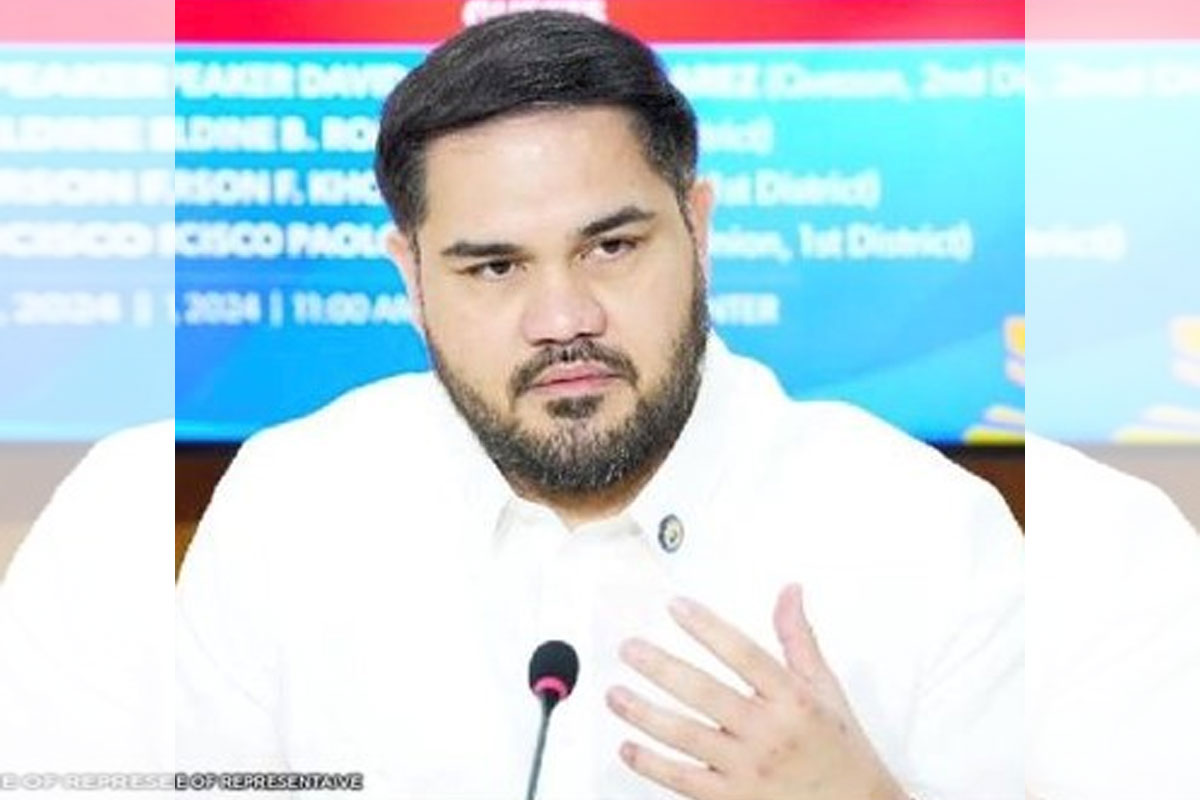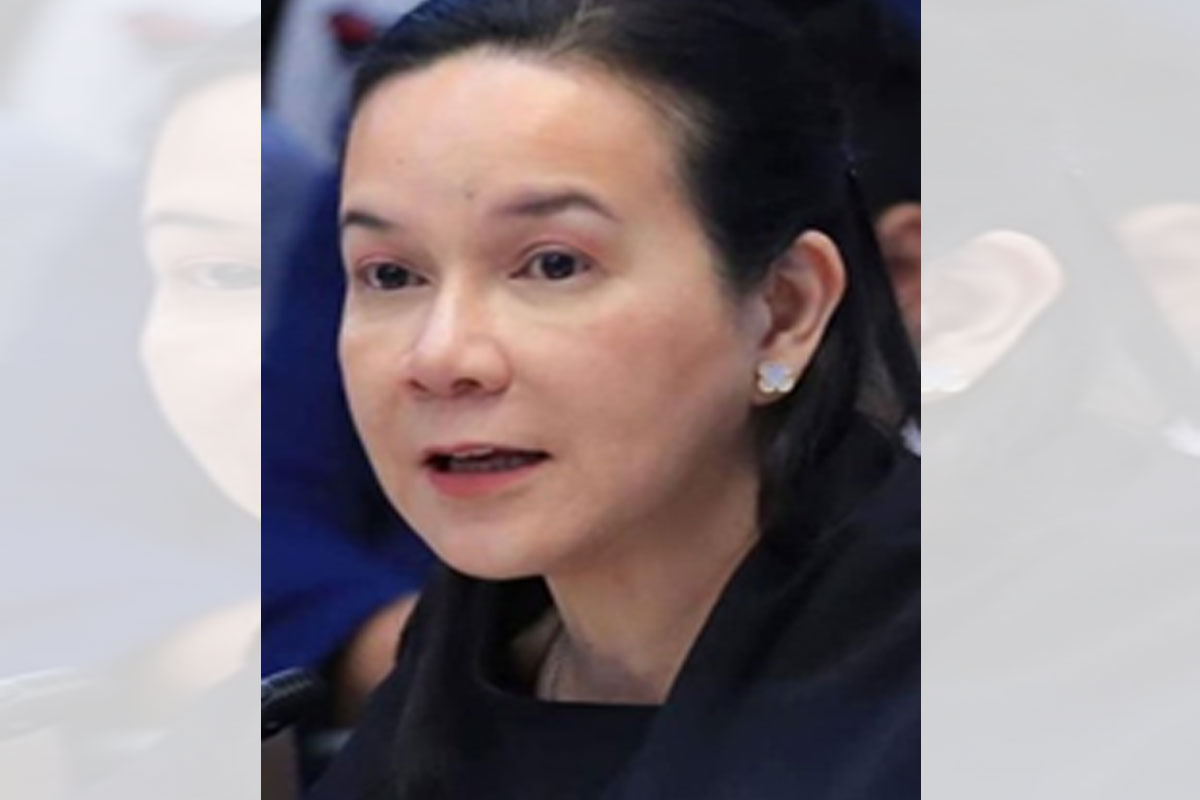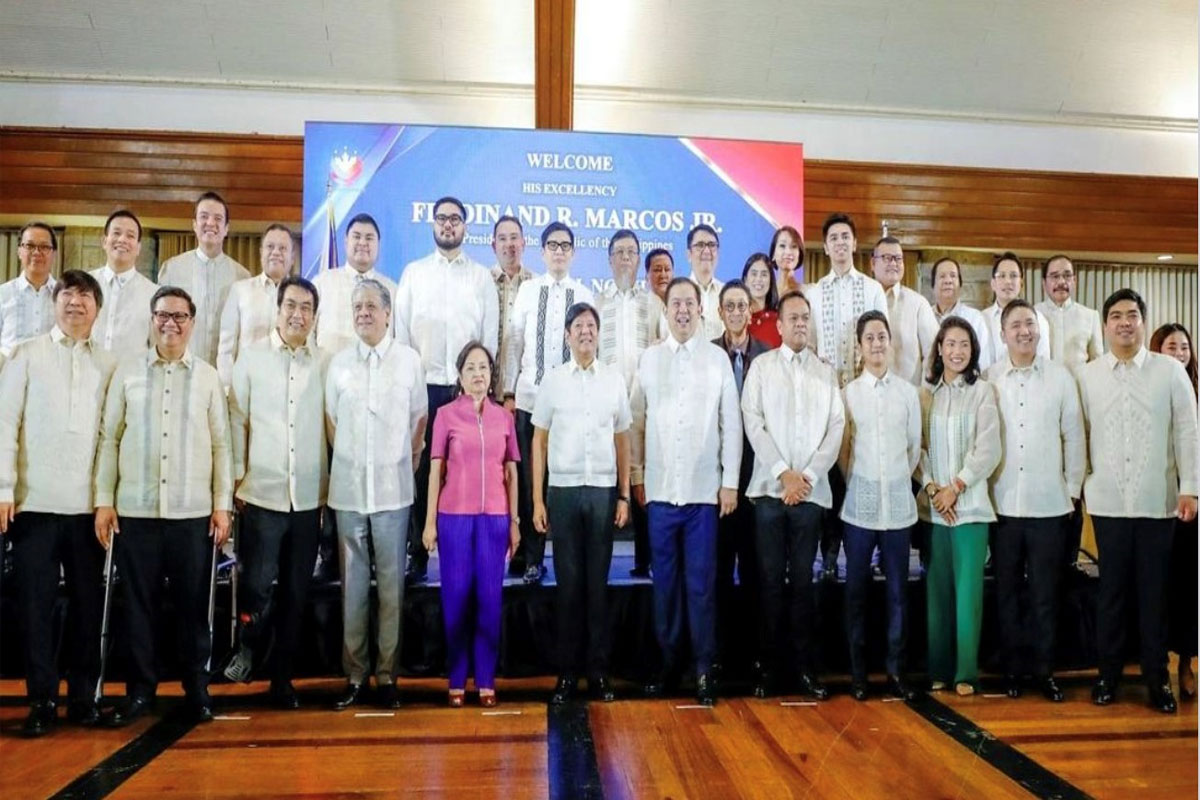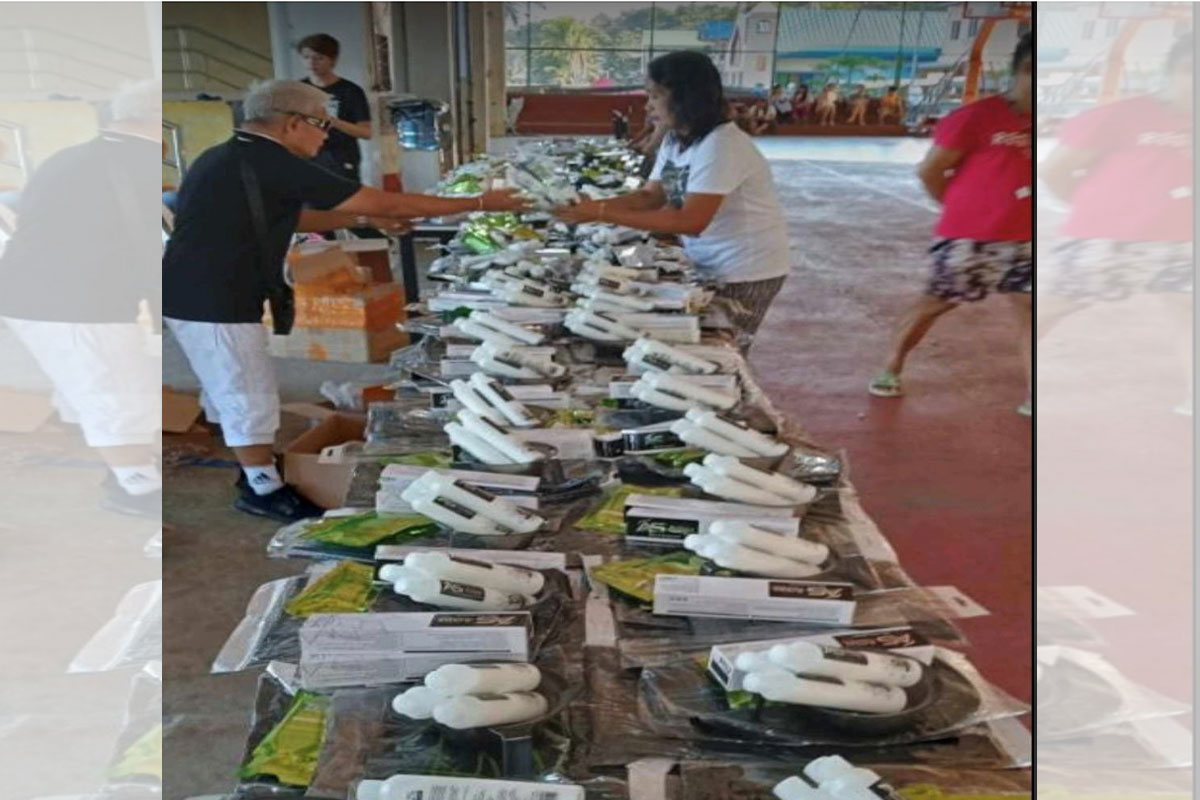
Christmas season : Merriest time but the deadliest time of the year and the Healthy Lifestyle Checklist
 CHRISTMAS Day is just around the corner but many patients are being confined or admitted in the hospital and it’s not even close to December. We have a double pandemic ( lifestyle diseases and infectious diseases globally eg Covid cases, flu and pneumonia and cardiovascular conditions ( strokes and heart attacks ).
CHRISTMAS Day is just around the corner but many patients are being confined or admitted in the hospital and it’s not even close to December. We have a double pandemic ( lifestyle diseases and infectious diseases globally eg Covid cases, flu and pneumonia and cardiovascular conditions ( strokes and heart attacks ).
Scientific research over time has shown an uptick in cardiac events during the winter holiday season, and more people die from heart attacks between December 25 th and January Ist than at any other time of the year. ( When Throughout the Year Is Coronary Death Most Likely to Occur?
A 12-Year Population-Based Analysis of More Than 220 000 Cases – AHA journals
Robert A. Kloner, W. Kenneth Poole and Rebecca L. Perritt
Originally published 12 Oct 1999)
As a cardiologist , it was difficult to leave for a short vacation during the Christmas holidays. Unknown to many , cardiovascular diseases occur most often during the Christmas season extending to January of the following year. Cardiovascular deaths around the world, such as heart attacks and strokes, peak in January. Why this is the case has baffled scientists for some time, but new evidence is starting to unravel the mystery.
The Kloner research found that the highest number of heart attacks occurred during the Christmas and midsummer holidays. The 1999 study examined all cases of death caused by coronary artery disease from 1985 through 1996 in Los Angeles County and found an increase in heart attacks in December and January.
Excessive eating and drinking: Holiday food often has increased sodium, which increases blood pressure and forces your heart to work harder. Let’s face it, plenty of people tend to overeat during the holidays, when food is inviting and plentiful. Too much alcohol consumption isn’t good for heart health. Alcoholic drinks are diuretics, which means they trigger your body to make more pee and peeing a lot can lead to dehydration.
Related also to alcohol drinking, is a medical condition medical experts call “ holiday heart syndrome? “ Holiday heart syndrome (HHS) was first identified in 1978 by Dr. Philip Ettinger. It is when healthy people without heart disease known to cause arrhythmia experience an acute cardiac rhythm disturbance known as atrial fibrillation after excessive alcohol intake.
A new Global Cardiovascular Atlas shows that rates of cardiovascular disease are falling in wealthier countries. During the second half of the 20th century, deaths from diseases such as heart attacks and strokes fell by 50%. In most high-income countries including the US, UK and Western Europe deaths fell by a huge 80%. But this is not a global phenomenon. The findings, launched by the World Heart Federation in its journal Global Heart, showed that in several low and middle-income countries the epidemic is still developing.
Lifestyles and treatments Diet, high blood pressure and tobacco use were the three main culprits for causing cardiovascular disease worldwide.
Tobacco appears to be a clear dividing factor when you compare Asia to North America, Western Europe and Australasia, where efforts to curb smoking have been successful.
Another difference is the more recent experience of demographic and behavioural changes lower and middle-income countries have had to adapt to. These include increased life expectancy and more sedentary lifestyles, combined with poor diet.
Other risk factors include alcohol, which was the fifth most important cause of death from cardiovascular disease in Eastern Europe, and air pollution, which was the fourth most important risk factor in East Asia. High body mass index is another important risk factor across the world.
Potential Mechanisms for the “Merry Christmas Coronary” and “Happy New Year Heart Attack” Phenomenon
Robert Kloner, MD
Circulation , 2014
1. Inappropriate delay in seeking medical attention
2. Reduced levels of healthcare staffing or fewer staff members who are familiar with individual patients during holiday on-call schedules
3. Increased emotional stress
4. Overindulgence (eg, increased intake of food, salt, fats, alcohol)
5. Increased respiratory problems (eg, upper respiratory infection, influenza, particulate matter generated from wood-burning fireplaces)
6. Colder weather, leading to increased vascular resistance, coronary spasm, hemostasis and thrombus formation, O2 demand
7. Decreased hours of daylight
8. “Postponement of death” concept
Although cooler temperatures may play a role as studies have shown that this might constrict the cerebral and the coronary arteries other factors such as overindulgence or the stress of the holidays might also contribute to excess deaths during these peak times.
Prevention : Reminders and Tips
Reduce exposure to cold temperatures outside and make sure the heat is on inside to help alleviate stress on your heart.
Get Your Flu Shot – A recent study has found getting a flu shot can help reduce the risk of a heart attack, stroke and cardiac death by 50 percent.
Get your COVID boosters can also prevent Covid viral transfusion during the holiday rush.
It’s about time that we seriously take a serious look at the food we eat and the beverages we drink ; perhaps people should walk , run or exercise at least half hour a day , and try to shed off a few pounds before the holidays.
See your doctors
Reduce your risk of sudden cardiac arrest by getting regular checkups, being screened for heart disease and living a heart-healthy lifestyle.
Locally , I have come up with a “ Healthy Lifestyle Checklist “ to prevent those catastrophic medical problems not only during the holiday season but also throughout the year. ( See Attached Picture ) 👇👇👇
As Benjamin Franklin once said, “ An ounce of prevention is better than a pound of cure. “ By Dr. Tony Leachon
###
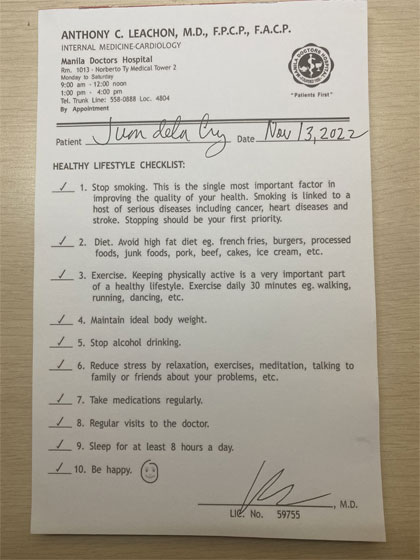 Anthony C. Leachon, M. D.
Anthony C. Leachon, M. D.
Independent Health Reform Advocate
Past President ,
Philippine College of Physicians
Chair , Kilusang Kontra Covid
( KILKOVID )


